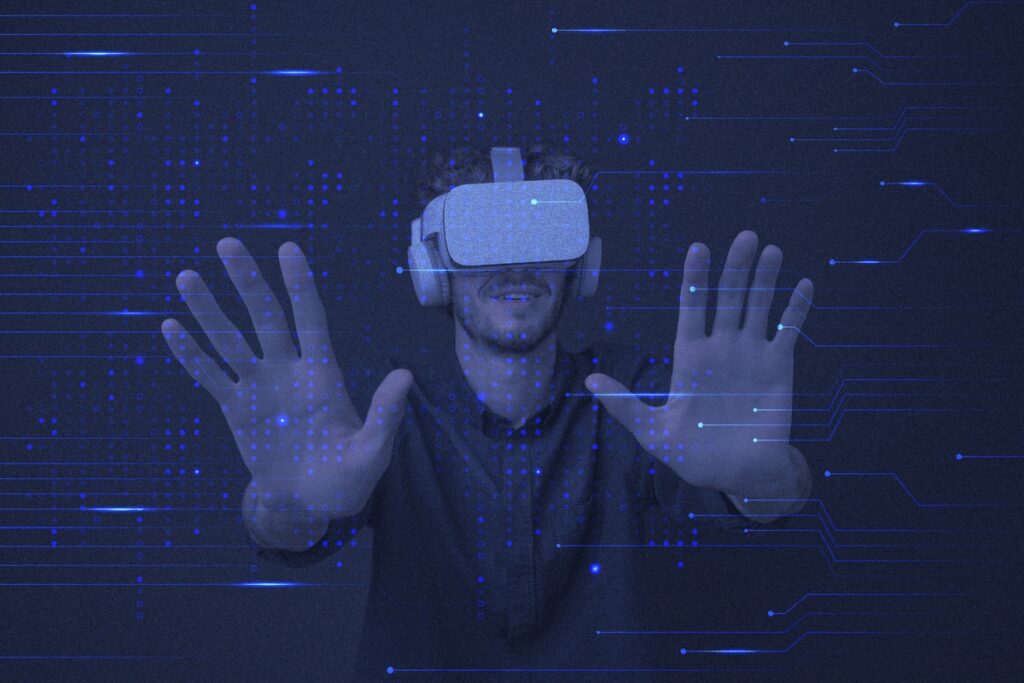“Technology, like art, is a soaring exercise of the human imagination.” – Daniel Bell, American Sociologist
It seems that in the past 10 years or so, something has shifted within the world of HR. As the years progress, we are seeing newer, better HR tech emerge. It’s manifesting in the form of software, AI, machine learning, automation, and so much more. Even VR and AR aren’t off the table. There are also many milestones of companies and organizations using these technologies to conduct operations in innovative ways. The fact of the matter is that technology is constantly shifting, as it has for much of human history; it’s just that we are seeing more and more of it in increasingly shorter windows of time.
This trend leads to another trend, which is an increasingly saturated tech market in recruitment and HR. That, in turn, leads to higher levels of competition, with the exact solution being lost in the fray of it all. So, as a business that wants to enter this exciting and complex landscape, where do you begin?
We believe that you need to look at the emerging trends in the industry and pick which one works best for your business. This is exactly what we will be covering in this blog: 7 different HR tech trends in 2022 and beyond, which you can expect to see.
Table of Contents
Toggle1. Virtual Wallets
Tech sovereignty is a concept that means tech is moving towards something more independent. No doubt you have heard about virtual wallets. We use things like PayPal and CashApp every day. Those, in essence, are virtual wallets. There are similar concepts in the crypto currency world where people store their Bitcoin and passwords on digital ledgers. The same thing applies to virtual wallets in the world of HR.
The one notable difference is that we expect to see the use of virtual wallets for the storage of employee credentials, educational history, personal documents, training badges, and so on. So, in the event of a recruitment scenario, HR can just request access to the candidate’s wallet, which will have the information stored on a block chain. This means that everyone in the hiring process gets a more streamlined background check solution while securing the information for privacy and protecting against things like data fraud and hacking.

2. People Analytics and Data
For the longest time, HR tech and the world of HR were stuck in the “this is how it’s always been done” attitude. However, more recently, businesses have started adopting an innovation-first mentality, following the Great Resignation that we saw in the post-pandemic era, which left the HR department struggling to overcome talent shortages.
With innovation taking the driver’s seat, though, these recruiters gain access to people analytics and databases that link everything together. By leveraging data, the efforts put in can be more result-oriented. No longer will companies have to just shell out money for the sake of keeping people. Rather, this HR tech will allow them to hire more accurately with what is known as “talent intelligence.” Ultimately, this means better hiring and more reliable solutions.
3. International Recruitment
Not all the trends have to do with HR tech specifically, some of these trends are merely developments in the industry that are reshaping the way people approach work. Keeping our train of thought along the lines of the Great Resignation of 2021, we foresee a high demand for international job-seekers in 2022 and beyond. The fact of the matter is that companies are struggling to hire top talent in local areas, and with remote work becoming an increasingly popular and viable option, it just seems fitting.
Even today, we are seeing many companies find ways to get around having on-site staff. Employees get more flexible work hours, while still meeting performance demands. It is a win-win situation.
"What new technology does is create new opportunities to do a job that customers want done."
- Tim O'Reilly, CEO of O’Reilly Media, Inc.
4. Tech-Based Brand Advocacy
Recruiters are not just hiring people, they are also managing a brand in the eyes of the candidates. This means candidate management and candidate engagement are top priorities. As a result, branding and customization must be at the forefront of what recruiters look for in software. HR tech, going forward, will need to be able to incorporate brand advocacy into all its processes, meaning that it will have a social component, allowing it to be easily integrated into social platforms.
5. Increased Data Collection and Automation
Before remote work came into the picture, companies relied heavily on in-person interactions and observations to manage employees. They used old-school insights to navigate employee experience, retention, and performance. However, with the rise of remote work and the distribution of team members, this in-person approach won’t work as well. Hence, it is necessary to rely more on data collection and automation to help manage the aforementioned employee aspects. Using tools like standardized candidate assessments and automated reference checking software is a great way to go about it.
The Metaverse is the new frontier of how recruitment strategies will be executed by companies.

6. VR, AR, and the Metaverse
One of the more recent developments in HR tech is the use of VR, AR, and Metaverse technology by companies. They are employing these tech solutions to bridge the divide between the digital and the analogue. But more importantly, it is an innovative way to remotely engage and motivate employees.
Zoom calls and Google meetings are great for the time being, but even working from home can become stale. With the use of VR and the like, employees can have an immersive work experience, new hires can have a walkthrough of virtual office spaces, and job interviews can be made more engaging and fun! There is also the fact that using these innovative approaches boosts a company’s brand image in the eyes of new candidates and employees.
The work being done by FS Studio is a prime example of the innovations taking place with AR, VR, and XR in the workplace. They approach the metaverse as a bridge that connects the physical and digital worlds. FS Studio’s primary focus in creating a metaverse experience for businesses so that they might better connect with audiences. They work with clients to craft immersive replicas of the workplace with cutting-edge tools like the Unreal Engine and Unity. Having said that, this example gives you an idea of the increasingly centralized role that metaverse tech is playing in the business ecosystems of the future.
7. DEI Tech
The presence and importance of DEI (Diversity, Equity, and Inclusion) are here to stay in the modern workplace. So the only question is: how does HR tech impact the DEI strategies of a company and how will it mesh? It is understood that DEI and HR Tech are completely different topics, it should also be noted that the two aren’t mutually exclusive. Only once the two have been unified within a business can you leverage people analytics data to drive and shift the organizational culture. It also lays the foundation for promoting belonging and inclusion while reducing workplace biases.




